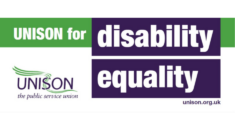More than 67% of female police staff say that bullying is a problem at work, with 72% not confident that their employer will deal fairly with complaints.
These findings were at the heart of a UNISON survey of 1,000 police staff, released in February, which was the first to explore bullying in the police since the introduction of the police code of ethics in April 2014.
The research reveals that women who work as police staff – 999 call handlers, police community support officers, crime scene investigators, fingerprint experts and detention officers – are 28% more likely to be bullied than their male counterparts.
Female respondents to the survey cited humiliation and being belittled or embarrassed as the main form of bullying (43%), followed by excessive criticism (37%), being excluded or victimised, and excessive work monitoring (29%).
Both men and women said that poor management was the most common cause of bullying (73%), closely followed by workplace culture (47%) and staff cuts (36%).
Hopefully it won’t happen, but if you were to find yourself faced with bullying or harassment, what should you do?
“If you’re not in a union – join a union. If you are in a union, talk to your rep, ring the branch office.”
That’s the no-nonsense response of Maureen Le Marinel, the former UNISON president who works for Lancashire Police and who became involved with the union after she herself faced bullying at work.
After being discharged from the army for being gay in 1983, Maureen got a job with Lancashire Police, in the control rooms.
Then, having completed her six-month probationary period, she decided to come out to her colleagues. They had no issues with her sexuality, she recalls, but “a couple of the police managers weren’t too happy”.
Her shifts were changed, she was given tasks that were “not very nice”, and denied training.
“They generally made my life hell,” she says. “I loved the job, so in the end, I thought: ‘I’ve just been kicked out of the Army that I loved, I’m doing another job that I love and it’s going in the same direction – and I’m not going to allow that to happen’.”
Maureen went to see the union. “They made a phonecall and I was seen and told that it would be dealt with in the right way.”
She then found that those who were responsible for the bullying behaviour were moved to work somewhere else. Maureen was informed that she would never have to work with them again.
“For me, it was an awful experience because bullying is an awful experience,” she says now. “But it ended up being dealt with in an extremely quick and effective way by the employer,” who then involved Maureen in developing new equalities policies.
She stresses that if anyone is being bullied they should, “Talk to the union, tell someone about what you’re experiencing – see what action can be taken. Your union will see you through every step of the way.”
6 steps to take if you are affected by bullying at work
Keep a written record or diary of all bullying incidents, including past ones – no matter how small they appear.
Speak to your UNISON rep.
Speak to the bully, if you can – they may not realise how distressing their actions are to you. If you’re unable to do this, ask your UNISON rep or a colleague to raise it with them on your behalf.
Speak to your employer. Your UNISON rep may be able to advise you on the best way of doing so and accompany you to any meetings with them.
Contact an occupational health service or employee assistance programme.
Become a UNISON safety rep, to help reduce bullying and harassment for others in your workplace.







